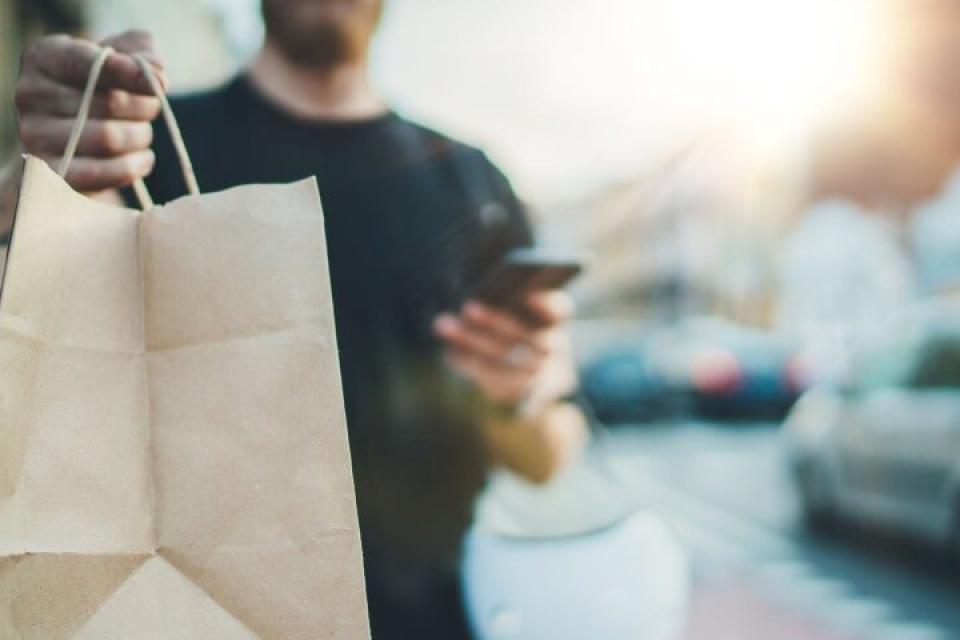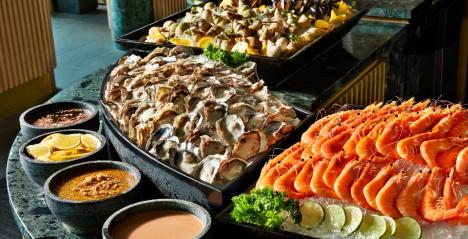Amid the COVID-19 pandemic, cities across Asia are increasingly limiting restaurants to takeout and delivery only.
Here’s how you can best avoid health risks and support your favorite local eateries.
As the novel coronavirus continues to spread across The Globe, governments have ordered bars and restaurants to shut down except for takeout and delivery. Please keep in mind, every city in the Expat Choice Network has a different protocol - and Singapore is in lockdown.
Public health experts have called for the global population to curtail mass gatherings and personal interaction in an effort to help “flatten the curve” by slowing the transmission of COVID-19, preventing a spike in cases that could overwhelm hospitals.
To stay home and limit contact with others - the idea of ordering food delivery may raise a couple of questions: First, is it safe? Second, is it ethical to expose a delivery worker to the risks you seek to avoid?
The answer to the first question is generally yes, with some stipulations. There is currently no evidence of food being associated with COVID-19 transmission, according to both the CDC and the Food and Drug Administration (FDA), although Vox reports that there’s “growing evidence of fecal to oral transmission, meaning you can ingest the virus shed in feces, through inadequate hand washing or contaminated food and water.”
It’s worth noting, however, that restaurants have long been required to follow food safety rules, in addition to extra measures now put into place in the wake of COVID-19. If you’re unsure about a restaurant’s food-handling standards, you can check its score on your local health department’s website. When it comes to the virus, the greater transmission safety risks are largely associated with interacting with other people.
The answer to the second question is a little more complicated. Yes, you should be conscious of the reality that many delivery workers currently face: a physically demanding job, a lack of employee benefits, and, amid this pandemic, higher exposure to customers who may be sick. But at the same time, workers rely on those delivery orders to pay their bills and support their families.
In a pandemic, there are no clear-cut, perfect solutions, but there are ways you as an individual can make choices that will mitigate transmission risks for both you and the workers you rely on to get your meal and let you order with a clearer conscience. Here are some suggestions:
Consider which ordering method is right for you
If your favorite restaurants have in-house delivery options, consider ordering through them directly instead of going through third-party apps, which not only take commission fees that can cut into restaurants’ already razor-thin margins.
But in the event that your preferred restaurants only deliver through providers such as GrabFood, Deliveroo and foodpanda, there are other factors you can take into consideration. For example, which companies are providing protections for at-risk delivery workers or helping restaurants whose business is plummeting?
GrabFood, Deliveroo and foodpanda are all stepping up precautionary measures to help contain the escalating coronavirus outbreak.
The steps include encouraging riders to take their temperatures and letting them drop off food without having physical contact with customers.
In Singapore, Deliveroo customers will be able to opt to pick up their food orders from a thermal bag placed on the floor while the delivery rider waits at least 1 metre away.
Grab, which runs the largest food delivery operator in GrabFood, said: "All partners are not allowed to come in contact with the food; they are instructed not to touch or open the food containers."
Deliveroo said it has been giving out face masks to riders at designated locations. It added: "If a rider does feel an area is high risk and they wish to not do deliveries, they can request to cancel any booked deliveries without penalty."
Foodpanda has also been distributing free face masks and hand sanitisers to riders and made it compulsory for them to have these items on shift.
Wash your hands and maintain good hygiene practices
Hand washing remains one of the single most important things people can do to protect themselves and others. After touching potentially contaminated surfaces, and before and after eating, wash your hands thoroughly with soap and water for at least 20 seconds. If soap and water aren’t available, use an alcohol-based hand sanitizer.
Other recommended hygiene practices include not touching your face with unwashed hands, as well as making sure to cough or sneeze into a tissue (or, if that’s not available, into a bent elbow) and then immediately washing your hands afterward.
Tip generously and rate highly
This is a big one! In Singapore, we are not very good at offering a tip for service, let alone for home delivery. The absolute minimum acceptable tip for any food delivery, should be 10 percent of your order charge. In an honest-to-god pandemic, consider doubling, or even tripling that, depending on how much you ordered and your financial situation. Think of it this way: Another human being risked exposure to a highly infectious virus so that you could eat without taking a single step outside. That has to be worth something.
Article Sources: The Straits Times, EATER.com
Edited by : Expat Choice John Gordon













